How We Game is About to Change Forever
Console gaming has offered a stable, reliable source of entertainment for decades. But how much longer will that be true?
This article first appeared on USgamer, a partner publication of VG247. Some content, such as this article, has been migrated to VG247 for posterity after USgamer's closure - but it has not been edited or further vetted by the VG247 team.
The advent of digital distribution has changed the face of the gaming industry, and given us more games and more choice than ever before. But while this is unquestionably a good thing for the gamer, what might it mean in terms of the traditional hardware landscape? That too seems set for a major change – and the USgamer team discusses the possibilities.
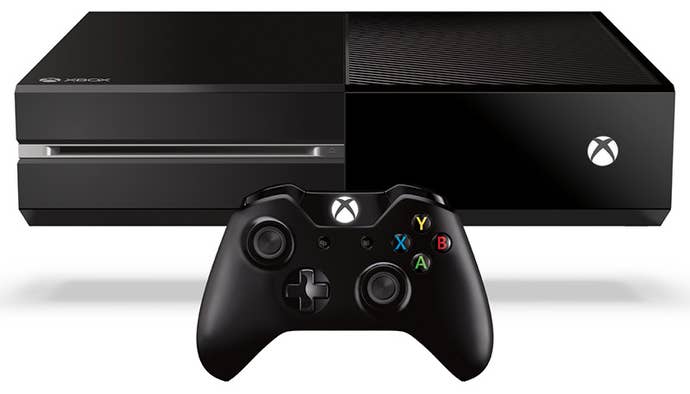
Jeremy: I am a person who games 100% on consoles and portables. But I'm also a pragmatist and realistic… and realistically speaking, I can see the era of consoles and portables drawing to a rapid close. Or at the very least, I see an end to the traditional console/portable/PC dynamic that's existed since Nintendo introduced the NES almost three decades ago.
Since the NES era, the games industry has been remarkably stable. At almost any given time, the bulk of original game content has been split pretty evenly among two leading consoles, personal computers, and (once the Game Boy debuted) a leading portable system, with a handful of lesser platforms jockeying for a handful of leftovers. Things began to change about five years ago when Apple's iOS made mobile gaming a legitimate mainstream concern, finally taking a bite of Nintendo's portable dominance after two decades of failed efforts by other competitors. Things have simply snowballed from there.
In the past year alone, we've seen the launch of Ouya, an attempt to take mobile games to the television; Amazon snatched up Double Helix for, we assume, the purpose of creating original content for the mystery Amazon console; Valve unveiled their Steambox (I played my first SteamOS-exclusive game last week at GDC); and now Facebook of all things wants in on VR gaming with Oculus Rift. Some of these ventures were better than others, but collectively they speak of a revolution waiting in the wings.
So what, you may ask? There are always outliers waiting in the wings. Look back to the early ‘90s, for instance, when Sega and Nintendo had to compete with NEC's TurboGrafx-16 and PC-FX, SNK's Neo-Geo, the Philips CDi, the 3DO standard, the Bandai Playdia and Pippin, and several other platforms that jockeyed for relevance before Sony's PlayStation felled them all in a single blow. How are all these other new maneuvers any different than what's come before?
The main difference I see is that these days the console biz is already hurting. Wii U may as well not even exist, and I'm still at a loss to see the endgame for Xbox One. PlayStation 4 seems to be doing pretty well for itself, but even then its sales figures aren't too far off from where PlayStation 3 was at this point in its life… and PS3's early lifetime performance was seen as downright disastrous. I don't know that any of these new competitors will end up supplanting the current console market structure, but unless you're in serious denial there's just no getting around the fact that we're due for a massive shakeup. The way I (and millions of others) play video games is about to change radically, and probably forever.
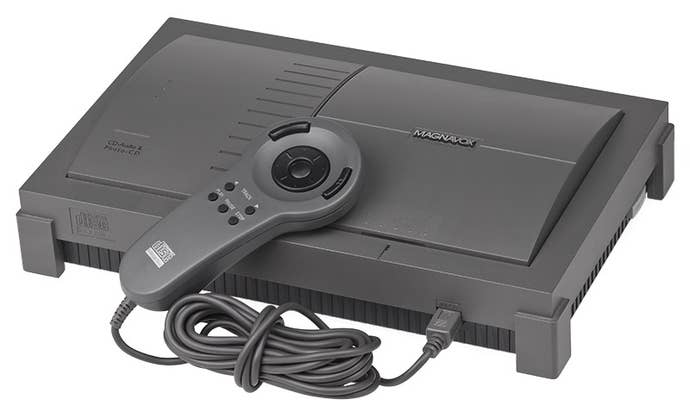
Mike: Conceptually, gaming consoles as device that just plays games aren't dead, but they don't seem to have as wide an audience as they did before. The earlier generations Jeremy talks about spring from the idea that game consoles were all there was for mainstream game playing. We're not going back to those days anytime soon, technology has seen to that.
Casual, mobile, social; these market segments aren't killing gaming, they're expanding it, but from the point of view of the PC/console-only game enthusiast, there's a definite contraction. In the era of the Super Nintendo, the PlayStation, the PlayStation 2, and the Wii, there were always mainstream consumers who purchased the reigning game device because everyone had one. They were the insulating cushion for the gaming industry. When the Nintendo Wii hit the scene, we had a name for those consumers: the "blue ocean".
Those consumers aren't coming back in large numbers, unless technology shifts again.
In 2009, Wired Magazine deputy editor Robert Capps wrote an article called "The Good Enough Revolution: When Cheap and Simple Is Just Fine". The article looked at the rise of cheap Flip Cameras: they were obviously weaker compared to real cameras and camcorders, but for many consumers they were good enough and that's all they needed. Flip in turn was killed by the rise in smartphone cameras, another "good enough" phenomenon. Sure, your DSLR will shoot better pictures, but I have my phone with me all the time. I just need to capture the moment in decent-enough quality, much to the distress of professional and fan photographers everywhere. It happens in movies, music, and more.
So it is in our market. No, mobile titles don't always rise to the heights that console, PC, or portable games do... but most people don't really need them to. They just need something fun to play, something to pass the time. So they turn to the phones they already have in their pockets and the tablets they already have in their backpacks and purses. And just like that, the extra cushion in the enthusiast market is gone. We're not dead, but the good times aren't as good as they once were.
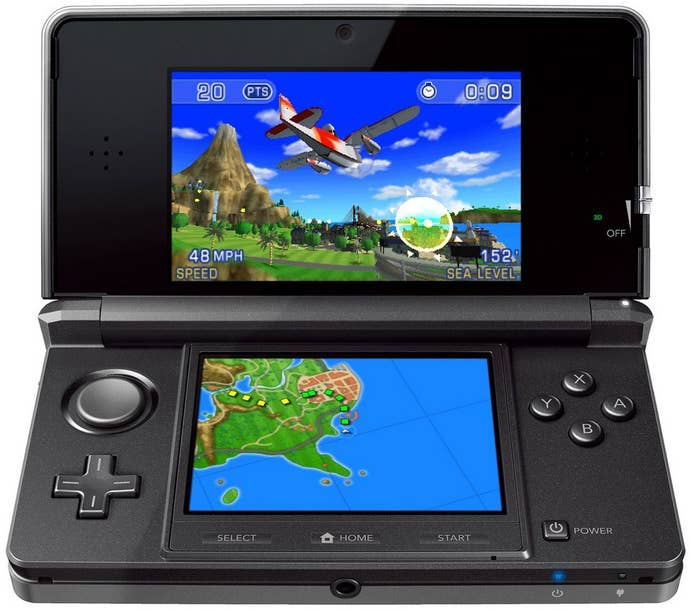
To get those "blue ocean" consumers back, we need one of two things: Novelty or ubiquity. The platform needs to be strange and new, or it has to be everywhere. The Oculus is the first of those needs, it's a novel platform. It's got some kinks, but there's a sense of wonder in people when they first strap one on.
With Facebook, Oculus has a shot at the second of the two needs. Facebook has a ton of money and somewhere in the neighborhood of 1.3 billion users. If only a fraction of those users are turned onto the Oculus Rift, that's a win for the technology.
SteamOS is just Steam Big Picture mode over a Linux distro, but that could be all many consumers need from a game system under their televisions. Valve doesn't have the mainstream name recognition, but it does have the love of developers.
Finally, if Apple and Google decided to really step in a with mobile-OS powered set-top box focused on gaming, that would tear up the current status quo. As it stands, it looks like Amazon is going to make the first move in that space. Amazon serves around 20 million Prime subscribers and 209 million active customers at last count. Even if the company just throws an Ouya clone out there, that's a big change to the gaming industry. They can show their product daily to millions of consumers already pre-disposed to buy something. And it looks like Amazon is doing a bit more than just an Ouya.
So, we live in interesting times. Things are changing. Nintendo, Microsoft, and Sony have to evolve. I think it'll be exciting to see what they do.
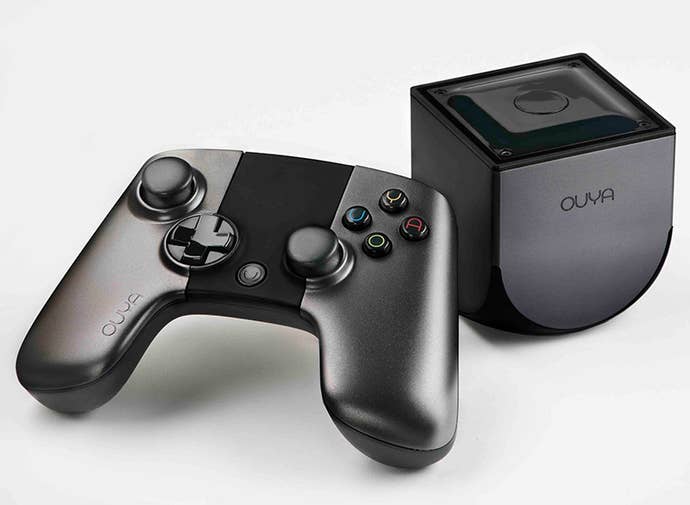
Jaz: Ever since the late '70s, you either made console games or "computer games." The former was expensive and risky, requiring an up-front outlay of cash to manufacture cartridges plus a hefty "licensing" fee to the console manufacturer that would leave the publisher in the red until those cartridges sold. Which sometimes they didn't — catastrophically, in the case of the Great Video Game Crash of 1983. The latter started out as a home-based occupation that rapidly expanded into a developer-publishing system by the early '80s. It was cheaper, easier and less risky, because duplicating cassettes or disks was relatively cost-effective.
However, whichever way you went, retail was your distribution — and over the years became an increasing barrier to entry for any up-and-coming software company. To carry a game, retailers required a big commitment in terms of production so it could be distributed nationwide. Because of that ante, more marketing dollars were required to drive awareness of the game, otherwise it wouldn't sell. That, combined with the up-front cost of producing a game resulted in an industry that consolidated over the years until it was locked down into a cozy major publisher-retail model. You either went through a publisher… or you were out in the wilderness.
Even then, the publisher-retailer model wasn't great. From a $60 game, a publisher would expect to give around $16 to a retailer, and pay around $7 to the maker of whichever console the game was destined for. Add to that another $5 for manufacturing and shipping, plus an average of $7 in unsold inventory returns, and the publisher walks off with $25. But wait, there's more! Within that $25 were marketing and development costs too - plus any licensing costs to do with the game.
Which is why so many companies have gone bust over the years: It only took a few consecutive missteps, and even a big publisher could be in serious trouble.
Now it's time to welcome our new digital distribution overlords. The iOS and Android platforms, as well as Steam have basically opened the door to any developer willing to invest their own time into a game. And even the console manufacturers have gotten in on the act, with low-cost ways to reach players via online distribution.
And of course, the big companies are now in on the game too, which is hardly surprising. Anyone downloading a premium game today is saving the publisher up to $28 if the above retail numbers still hold true. Which makes you wonder why you're actually paying full price for a digitally distributed game that you can buy in physical form at retail — but that's another conversation for another time.
But ultimately, digital distribution has opened the door and given developers a direct route to the customer. There are still fees to pay along the way, but fact of the matter is that these days, anybody can be their own developer and publisher rolled into one. There's certainly no guarantee of success, but at least everyone now has a chance of it, no matter how slim it might be in what's already become the most competitive and saturated games market in history.
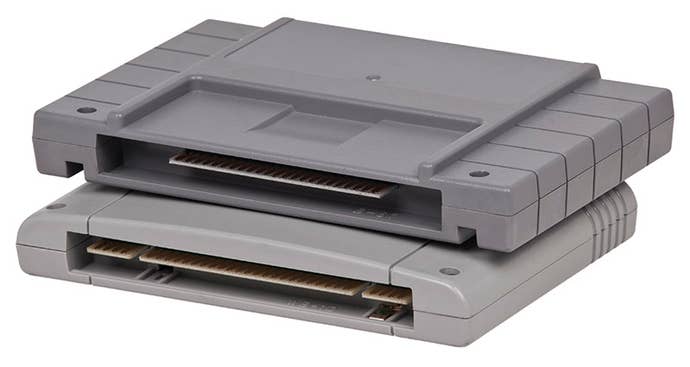
Pete:: The landscape of gaming is definitely changing, but rather than one aspect or the other being "killed" or dying off, I see it as the whole shebang diversifying and broadening considerably.
The most disruptive influence on the modern games industry has been the advent of mobile and social gaming. To those of us who have been playing games for years, these titles are often utterly laughable, being devoid of what we'd call traditional "gameplay" and instead focusing on not-terribly-subtle means of extracting money from their audience. But far more so than even the original Wii managed, these titles are getting people who would never have previously considered picking up a controller to start playing games, for better or worse.
Millions of people play Candy Crush Saga every single day. This can make the modern computer and console gaming sectors look somewhat pathetic in comparison, but in reality each of these aspects cater to such a radically different aspect of the potential game-playing audience that they might as well be completely different industries. Traditional computer and console game players are still happy with the packaged goods model, whereby they pay for something up-front and then have access to it forever; conversely, those who have come to gaming through mobile and social gaming are more resistant to up-front costs, instead preferring to be able to try something for free, but are then more than happy to invest hundreds of dollars into their continuing play experience.
When these areas start to bleed into one another, we get tension. We've already seen it with things like Forza's microtransactions on Xbox One, and how EA desecrated the corpse of Dungeon Keeper with its appalling mobile game. In reality, these titles are attempting to bring the disparate groups together, but they have such different expectations from one another that I'm not sure it will ever quite work. At least, I hope it doesn't. The day when more games incorporate "pay to play" progress throttling than those that don't is the day I quit the industry for good.
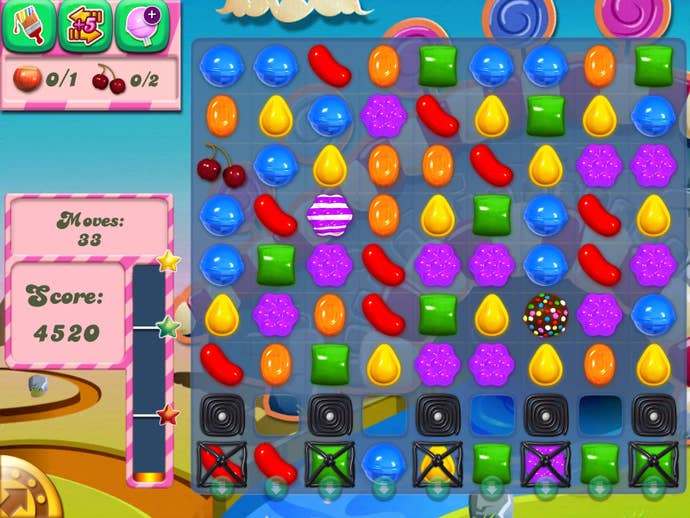
It's easy to focus on the negatives, though. What the growing diversity and breadth of the industry has also brought us is the revival of the independent developer. This was huge in the '80s and early '90s thanks to the fact that pretty much any home computer could easily be a "dev kit" in the right hands and with the right application of knowledge. Nowadays, easy access to affordable middleware and other tech such as Unity and its ilk means that literally anyone with a bit of dedication can become a game developer — with software such as RPG Maker and Ren'Py, you don't even really need to know programming. And even distribution is easier; getting on Steam is easier than ever, and alternative outlets such as Humble and GOG.com embrace independent developers more and more.
Even the console space is diversifying. Consoles used to be the sole preserve of $60 packaged disc-based games, but we're starting to see more and more "tiers" of games. We have the games that still launch at retail, but at a reduced price point — the Deadly Premonitions of the world. We have download-only games. We have free-to-play console games. And we still have the full-price, big-budget titles, too. There's no one way to do it now; there's plenty of choice, both for consumers and for developers and publishers, too. And that's ultimately a good thing.
I don't see the traditional models going away so long as there are people out there who will continue to support them — I have no intention of stopping buying physical discs for my consoles while they're still available, for example. But these other sectors will continue to diversify and expand alongside the traditional models, and for the "old guard" to continue to live in the manner to which they've become accustomed, they'll need to adapt, change and be flexible. This means that no longer are all games designed for all gamers, but that's no bad thing in the long run -- we all have far too large a backlog, anyway, so to know very well that certain aspects of the industry aren't "for" us is just fine by me. That's how other forms of media work, after all; you don't try and read every single book or watch every single movie, do you?
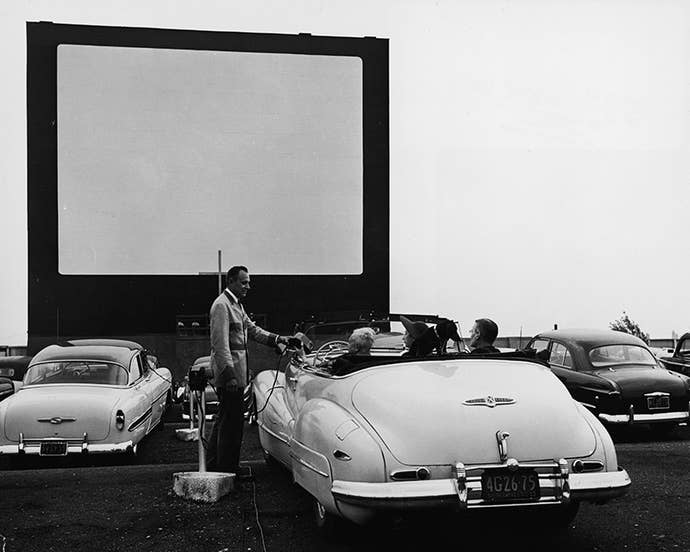
Jeremy: Pete, the one weakness with that line of reasoning is that games are so dependent on technological platforms. When a genre of literature fades to irrelevance, small publishing houses can still create books using the same paper-and-ink platform the rest of the world uses (or eBooks, or PDFs, or whatever). When a genre of film diminishes in importance, its creators can still use the same film or digital media that big studios use to record blockbusters and release it to DVD or iTunes all the same.
With games, it's not the same. The interactivity of games has shaped the platforms that host them, and those platforms in turn shape the design and content of games. The visual and audio capabilities of a system, the nature of its storage media, the amount and architecture of its RAM, the number and layout of its interface elements – all highly specific, and all impossible to replicate perfectly on other devices. Consider something as simple as the spinner used for Arkanoid's paddle controller; Taito released a little spinner peripheral for DS and DS Lite when it brought Arkanoid to that platform… but it became useless when Nintendo brought out the DSi and DSi XL, which dropped the Game Boy Advance cart slot that the peripheral plugged into. That's interface obsolescence within a single device's lifespan! Games are just too complex for the a la carte approach other media enjoy.
Films have really only experienced two radical changes in technology: The advent of color and the advent of sound. Games undergo that sort of sea change every few years. But the physical, tangible aspect of playing a game is part of the experience. The kinds of games I enjoy, the game experiences I gravitate toward, are in danger of vanishing. No, playing classic video games on an iPhone's virtual controller is not a faithful, satisfying recreation of that experience. No, lugging a laptop onto the plane so I can plug in a controller and emulate Super Mario Bros. is not the same as slipping a 3DS out of my pocket to play it. But when there's no value in making games for traditional platforms, publishers will stop bothering. We've seen this in action already. Consider how consoles have basically become the home of games with huge budgets and total shovelware, leaving little space for quality niche titles. Consider how many high-profile games never leave Japan because publishers no longer see the value in localizing games that'll sell 50,000 units at best — once upon a time, a respectable number.
I don't think we're seeing a broadening of the medium so much as a redefinition of it. And the platforms I use are part of what I like about gaming – which is to say, I use devices that fit my lifestyle and needs. Those are in genuine danger of going away, and I'm not really keen to reinvent my lifestyle and needs to keep up. I certainly don't plan to sit in my office with a stupid VR headset attached to my face.

Jaz: That's a good point. I mentioned above that now anyone can make any game and distribute it. In a way, software is going from a high stakes game to a low stakes game. At least, there's now a scale there. Companies like Rockstar can pour hundreds of millions into a game, but perhaps Bob and Jim might take on a localization project for a software company, because via a low-cost distribution channel, selling 50,000 copies of a game actually makes it viable for them to do so, with a big cut going to the publisher. So many of the costs of yore have been stripped out, I think there's more room for opportunism.
Mike: The problem is when software is a low-stakes games, discoverability becomes a huge problem. Developers on the App Store and Google Play need to hit the featured list or have an amazingly huge spike in word-of-mouth to really break out. Amazon has a really strong recommendation system in place to fix such things, but I'm not seeing that completely getting rid of the problem altogether. How do consumers find good games that resonate with them when they don't have GameStop or Best Buy shelves to peruse?

Jaz: Indeed. That's where I was going. The market has changed incredibly from only a few years ago. However, with so many open channels and so many developers willing to take a risk at making a game, the market is swiftly become over-saturated. And one thing that hasn't really changed is that the games market is still a Top 20 business. The vast, vast percentage of money goes to the top sellers, and everyone else fights over the scraps.
But what does this mean in terms of hardware? As Mike pointed out earlier, the vast casual gaming market will be happy with "good enough" games on mobile platforms or via a browser that are actually more than good enough if truth be told. And the hardcore gamers will want high-end hardware to play high-end games - at least, until they can stream those high-end games without needing the hardware (but they'll still need SOME kind of hardware to do that). I believe this will lead to a big squeeze in the middle. Wii U is one such platform that's being squeezed, and despite Vita being incorporated into the PS4 landscape nicely, it's also a fairly low-selling product.
The one thing we haven't factored in is crowdsourcing. In the same way that the games market has opened up, I think crowdsourcing opens it up for hardware. That too avoids the cut made by retail, and it also means you can spec out costs very effectively with little wastage. While it might be unrealistic to expect new consoles via crowdsourcing, if there's enough demand for a device or peripheral, it's very likely some enterprising person out there might make it. Plus there will always be niche companies doing interesting things. The RetroN 5 console plays NES, SNES, Super Famicom, Genesis, Mega Drive, Famicom, Game Boy, Game Boy Color, and GBA carts in proper old-school style. Who knows what kind of machines or emulators might be around the corner to play more recent games.
Streaming will also change things too. I think the future of gaming is ubiquity and choice - more so than we've ever seen. And that'll be great, as long we have decent, authentic controllers to play with.

